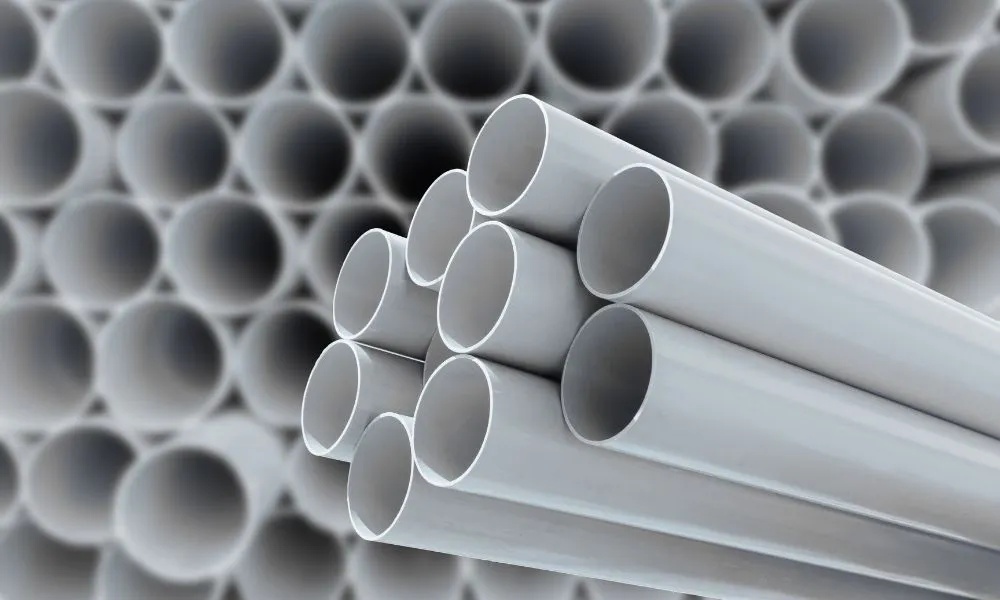The HDPE & PVC Piping Industry in South Africa: Trends, Challenges, and Opportunities
⬅ Back to Posts
In South Africa, HDPE (High-Density Polyethylene) and PVC (Polyvinyl Chloride) piping are widely used in infrastructure, construction, and water management. Known for their durability, cost-effectiveness, and environmental advantages, these materials have become essential in a range of industries, including water distribution, agriculture, mining, and civil engineering. This blog post explores the current state of the HDPE and PVC piping industry in South Africa, the challenges it faces, and the opportunities for growth in this critical sector.
Understanding HDPE and PVC Piping
HDPE Piping: HDPE pipes are highly durable, corrosion-resistant, and flexible, making them ideal for high-pressure applications. These pipes are also known for their environmental resilience, withstanding temperature changes and UV radiation. HDPE is a preferred material in water distribution, sewage systems, gas transport, and mining due to its flexibility and longevity.
PVC Piping: PVC pipes, particularly uPVC (unplasticized Polyvinyl Chloride) and cPVC (chlorinated Polyvinyl Chloride), are versatile and cost-effective. While they are not as flexible as HDPE, they excel in applications where rigidity and lower pressure are required. PVC is widely used in irrigation, electrical conduit, and drainage systems. The low-cost production and easy installation of PVC piping make it a go-to choice for many applications in South Africa.
The State of the HDPE & PVC Piping Market in South Africa
South Africa’s HDPE and PVC piping market is an essential part of its infrastructure development. As urbanization and industrialization continue to rise, demand for high-quality piping materials grows. The ongoing expansion of the housing and agricultural sectors also fuels the demand for durable, low-maintenance piping solutions. These materials are crucial for addressing key issues like water distribution and sanitation, especially in rural areas where infrastructure investments are growing.
Trends in the HDPE and PVC Piping Industry
- Infrastructure Development:As South Africa works to improve its water supply and sewage systems, HDPE and PVC piping have become integral to new projects. With governmental plans focusing on rural infrastructure, there is a steady demand for cost-effective, durable piping systems.
- Sustainable Materials and Recycling Initiatives:Both HDPE and PVC have a role in the push toward more sustainable construction materials. PVC is commonly recycled, and HDPE’s long lifespan minimizes the need for frequent replacements, reducing waste. Many South African companies are now focusing on environmentally responsible production and recycling programs.
- Growth in the Agricultural Sector:South Africa’s agricultural sector has been increasingly reliant on PVC and HDPE pipes for irrigation, water storage, and soil erosion control. HDPE piping is particularly popular due to its flexibility and durability in diverse climates and terrains, making it invaluable for sustainable agricultural practices.
- Increased Mining Activities:Mining is a vital industry in South Africa, and HDPE’s chemical resistance and resilience make it ideal for transporting water, chemicals, and waste in mining operations. With new mines opening and existing ones expanding, the demand for high-performance HDPE piping is on the rise.
Challenges Facing the HDPE and PVC Piping Industry in South Africa
- Economic and Currency Volatility: South Africa’s economic fluctuations and exchange rate instability can lead to raw material price increases, impacting production costs. This volatility poses a challenge for domestic manufacturers competing against imports from countries with lower production costs.
- Load-Shedding and Energy Constraints: Power shortages and regular load-shedding affect manufacturing productivity and efficiency, delaying production timelines and increasing operational costs. This instability presents significant challenges to the industry and may drive up prices for HDPE and PVC piping products.
- Environmental Regulations: As the South African government enforces stricter environmental regulations, manufacturers are under pressure to reduce emissions and waste. While this is beneficial for long-term sustainability, adapting to these regulations requires investment in new equipment and technologies, which can be costly.
- Competition from Imports: The South African HDPE and PVC piping market faces competition from imported products, particularly from countries like China and India. These imports often undercut local manufacturers on price, challenging domestic businesses to find ways to remain competitive.
Opportunities for Growth
- Expansion of Municipal Water and Sanitation Projects: With a focus on improving water access and sanitation in rural areas, municipal projects are a significant growth driver. HDPE and PVC pipes offer reliable solutions for water transport and sanitation infrastructure, helping meet government targets for water distribution and sanitation.
- Growing Demand in Renewable Energy Projects: Renewable energy projects, such as solar farms, frequently require durable piping solutions for water cooling and distribution. HDPE piping is well-suited to this industry due to its durability and weather resistance, creating a new market for suppliers in the piping industry.
- Investment in Research and Development: South African manufacturers are investing in R&D to develop innovative piping solutions that address specific needs. Examples include new HDPE variants with enhanced UV resistance and lightweight PVC pipes for ease of installation. R&D can help companies meet local demand and set themselves apart from international competitors.
- Adoption of Digital Technologies in Manufacturing: By adopting technologies such as automated production lines and quality control software, South African manufacturers can increase production efficiency and product quality. Digital technologies can also reduce energy consumption and streamline processes, helping to alleviate some of the challenges posed by load-shedding.
The HDPE and PVC piping industry in South Africa is a vital contributor to infrastructure and economic development. With increasing demand from sectors such as agriculture, mining, and water management, these materials are essential to the country’s growth. However, the industry must navigate challenges like economic volatility, load-shedding, and environmental regulations. By focusing on sustainable practices, innovation, and efficiency, the industry can meet the demands of a growing market and remain competitive on a global scale.
The future of HDPE and PVC piping in South Africa looks promising, with exciting opportunities for growth and innovation in the years to come.
